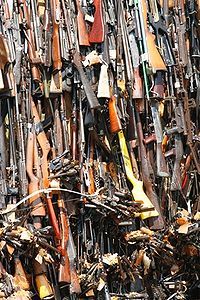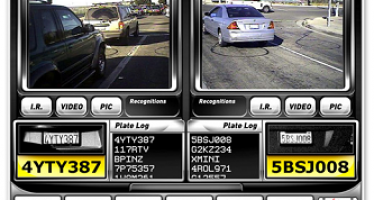Ammo tax would cost more than the ammo
April 17, 2013
By Katy Grimes
The recent mass shooting at Sandy Hook Elementary School in Newtown, Conn., is the motivation behind the overwhelming number of gun-control measures moving rapidly through the state Legislature.
One of these bills, AB 760, would charge 5 cents on every round of ammunition sold in California. At a hearing Monday in the Assembly Revenue and Tax Committee, the bill’s author, Assemblyman Roger Dickinson, D-Sacramento, said the bill would raise an estimated $50 million ostensibly to restore a mental health program for children.
AB 760 is one of eight bills introduced this year that increase regulation on just the ammunition.
Dickinson said that the 5 cent tax on each round of ammunition “is just that simple.” Then he shifted to talking about the benefits of the tax revenue. “It’s dedicated to restoring funding for the pre-existing early mental health program EMHI,” Dickinson said. “It aims at our very young children, in grades one to three, and helps them with diagnosis and then subsequent treatment.”
Dickinson explained that Gov. Jerry Brown cut funding for the Early Mental Health Initiative from last year’s state budget.
At a press conference prior to the hearing, Dickinson said he is not worried that the more than 20 gun control bills in the Legislature would hurt the chances of his legislation being passed, KQED reported.
Dickinson said he’s hoping the hefty ammo tax would diminish ammunition purchases. He added that the FBI says murders with guns amount to 68 percent of all murders in California. “There were 600,000 guns sold in California last year,” Dickinson said. “These are the costs we all must bear as a result of gun violence. Taxing ammo can provide a steady source of revenue.”
Opposing AB 760 are Gun Owners of California, the National Rifle Association and its state affiliate, the California Rifle & Pistol Association.
“Bulletproofing Communities” or tying their hands?
The Assembly Public Safety Committee has also approved the “Bulletproofing Communities” bill, Assembly Bill 48, by Assemblywoman Nancy Skinner, D-Berkeley, which aims for tighter controls of all ammunition sales in the state:
* It requires the sale or transfer of all bullets done only by licensed dealers.
* All buyers must present identification.
* Sales records will be transmitted to the California Department of Justice, which will notify law enforcement of anyone purchasing more than 3,000 rounds within five days.
* AB 48 would also ban conversion kits, which allow guns to fire more bullets without reloading.
No nexus between mental health and ammo tax
Dickinson noted, “There is no correlation between mental health and gun violence.” Yet his bill would fund the mental health program. Under state law, tax bills require a nexus between the tax and the program funded by the revenue.
AB 760 brought a challenge from Sam Paredes of Gun Owners of California, who said there is a Constitutional problem with Dickison’s bill. Paredes pointed to 1983 court case, the Minnesota Star Tribune vs. the Minnesota Commissioner. The U.S. Supreme Court found that state tax systems cannot treat the press differently than any other business without significant and substantial justification. The state of Minnesota demonstrated no such justification to impose a special tax on a select few newspaper publishers. Therefore, this tax was in violation of the First Amendment’s guarantee of freedom of the press.
By analogy, the court decision then would ban a special tax violating the Second Amendment “right to keep and bear arms.” In other words, a sales tax increase on all sporting goods, for example, might be allowed; but one only on bullets would not be.
A representative from the NRA held up an empty box of small caliber bullets and said the box retails for $1.50. Dickinson’s 5 cent ammo tax would add $2.50 to the purchase. “The tax costs more than the product,” he said.
Craig DeLuz with the California Association of Federal Firearms Licensees pointed out a section in Dickinson’s bill which clearly states retailers cannot offer to pay the tax for purchasers, the way furniture stores often do as a promotion.
Because Dickinson’s bill is a tax increase, it will require support from two-thirds of the Legislature. The bill was sent to the suspense file.
Related Articles
We’re all perpetual suspects: Portents of privacy-free era emerging in CA
The inexpensive ease with which law-enforcement authorities can monitor the citizenry has gotten some attention from the media, which has
L.A. Times’ undermining of ‘climate change’ claims could affect court fights
It wasn’t the intention of the Los Angeles Times, but the newspaper has provided historical drought data with implications
Legislature assaults ‘right to keep and bear arms’
Feb. 8, 2013 By John Seiler Add infringement of the Second Amendment “right to keep and bear arms” to a





